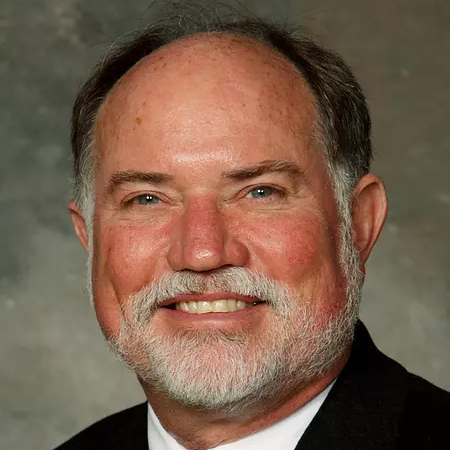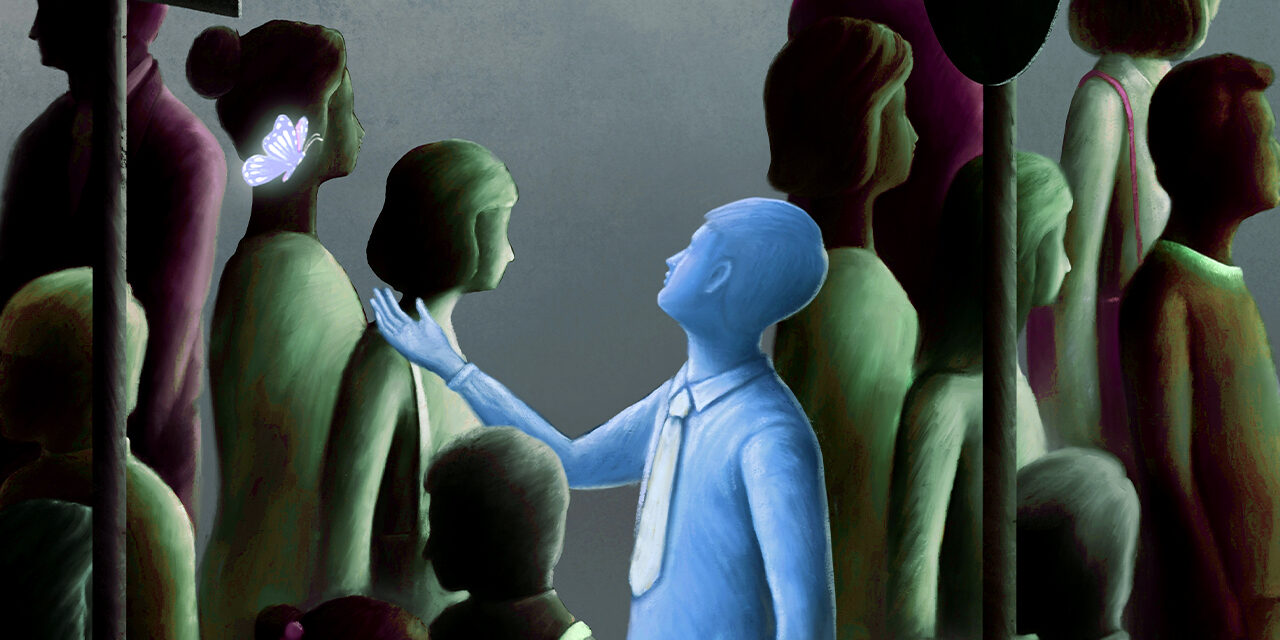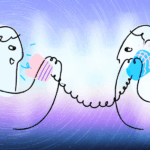
Denny Wayman
Denny Wayman, D.Min., is a member of the Study Commission on Doctrine and the moderator of Free Methodist Conversations. He served 40 years as the lead pastor of the Free Methodist Church of Santa Barbara and 10 years on the superintendent team (eight years as lead superintendent) of the Free Methodist Church in Southern California. He is the author of “Healthy Biblical Communities” and the discipleship trilogy: “Discipleship Ecosystem,” “Toxic Discipleship,” and the forthcoming “Rootbound.” He is married to Cheryl, a licensed marriage and family therapist. This article is an expanded update of a 2016 Light + Life article that highlighted five of the “Freedoms of Free Methodists.”
By Denny Wayman
In a bound and broken world, the Freedoms of our Free Methodist way of life in Christ are a profound blessing. Based on the teachings of Christ and articulated through the theology of John Wesley and B.T. Roberts, these freedoms speak directly to our 21st century setting and provide both our present identity and further the continuing historical goals of our shared lives. Being free to fully follow Christ in these specific ways not only energizes our hearts but also directs our work and ministries within the church and to our hurting world.
Just as our Wesleyan “theology of love” or “relational theology” defines us as we “love God, love people and make disciples,” this theological foundation has caused us to build a structure of freedom that takes the Methodism we inherited and expresses it in uniquely defining ways of how we treat one another. Though there are varying expressions of the freedoms of our movement, the ones that provide the most synergy and energy have been expressed as:
- Freedom of all races to worship together in unity.
- Freedom for the poor to be treated with dignity in the church and with justice in the world.
- Freedom for women and men to be treated respectfully and use their gifts equally in the church, in the home, and in the world.
- Freedom for laity to be fairly represented in the governing bodies of the church.
- Freedom from spiritual, political, social or conceptual alliances that compromise or subvert the exclusive allegiance we profess to Jesus Christ.
- Freedom to engage in worship that is moved and inspired by the Holy Spirit.
- Freedom from sin’s power through full surrender to God.
Freedom of all races to worship together in unity.
Free Methodists were and are abolitionists. This social justice comes from a deep place of love and respect for all people. Recognizing that every person is created in the image of God and that we are all brothers and sisters within His family, we come to our Father with our arms locked in solidarity with all His children. The sin of racism in all its varying forms is an evil that we do not tolerate. We work diligently to bring all people together into multiethnic and multicultural congregations, conferences, and Christian communities. That we are imperfect and have not yet achieved the fullness of this freedom only compels us to work even harder for justice for all.
_
“We are preparing to be a united people.”
_
Continuing the work of B.T. Roberts who was an abolitionist in the 1860s, today we are working to end global slavery through our Set Free Movement. Under the guidance of Kevin Austin, we are working together to end the sexual and financial enslavement of the powerless in our world. Primarily represented by women and children, these modern-day slaves have lost the freedom that Christ came to give.
On another front, we are working through our immigration services to bring legal solutions to those who have come to the United States to make a better life for themselves and their families. These legal clinics are approved by our government as a compassionate way for churches and others of goodwill to help in direct and tangible ways to set people free from the vulnerability they experience from often enslaving employment practices that working with an undocumented status produces.
The ultimate relationship of all Christians is described by John when God revealed to him the life we will all share in heaven. Beginning here on earth, we are preparing to be a united people “from every nation, from all tribes and peoples and languages” (Revelation 7:9 NRSV) as we stand before God in worship. This freedom from racism and vital expression of unity is a value of God that we take seriously as Free Methodists.
Freedom for the poor to be treated with dignity in the church and with justice in the world.
The enslavement of the poor and vulnerable continues to be a reality within our world. The inequity of socioeconomic class distinctions often extends even into the church when status and deference is given to those with wealth while the poor are in some way kept down. Freedom from this evil is the second freedom of Free Methodists. We are committed to leave socioeconomic distinctions and prejudices outside the sanctuary and invite all people into true fellowship and acceptance in our ongoing commitment to show the love of Christ to all.
This commitment is put into action outside the sanctuary as we seek justice for the poor and vulnerable who have substandard education systems, higher rates of incarceration, and poor health due to lack of health care and nutrition. Though Jesus said that we will always have the poor with us, He also calls us to care for the least of these among us (Matthew 25).
Freedom for women and men to be treated respectfully and use their gifts equally in the church, in the home, and in the world.
After a lengthy discussion that was begun by B.T. Roberts in the 1800s, Free Methodists have come together in valuing equality between men and women. The devastating curse of original sin that caused women to be dominated by men created a patriarchal world, which has been restored by the work of Jesus Christ. Jesus revealed this restoration by His transforming interactions with women in the Gospels. Paul proclaimed in Galatians 3:28 that there is to be equality between men and women just as between the races because we “are all one in Christ.” Free Methodists look not to the gender of a person but to God’s call and gifting to determine whether a person is fit to be a leader, including fully ordained as an elder within the church. Thus Free Methodists work to set all people free from the arbitrary cultural limits placed on women so that the church may, by teaching and example, fulfill the redemptive work of God.
Though there are still those within the larger Christian faith who do not understand this tremendous freedom Jesus gave us, Free Methodists continue to proclaim this freedom. Representative of that, the seminal work of B.T. Roberts, “Ordaining Women,” has been edited and reprinted to fit present-day sensitivities and scholarship. Also representative is the Junia Project led by Gail Wallace and Kate Wallace Nunneley.
Freedom for laity to be fairly represented in the governing bodies of the church.
Free Methodists are committed to ending the clergy domination of the church and forming a consistent partnership with clergy and laity working together to do God’s work. This elevation of laity to use their spiritual gifts alongside those given pastoral gifts enriches all aspects of life in the church and protects against institutional abuse.
_
“Free Methodists value the education of all people.”
_
This equality is increasingly causing us to recognize the necessity for the church to invest in leaders who are not only clergy but also function within the arenas of business, the academy and the community. Recognizing the Wesleyan and Free Methodist imperative of equality based on God’s love for all, Free Methodists value the education of all people. Thus we established and support Free Methodist colleges and universities to express our value of holistic education that integrates faith with practice to prepare students to serve God in whatever He calls them to do as well as prepare them to take on increasing responsibilities and leadership within the church.
Freedom from spiritual, political, social or conceptual alliances that compromise or subvert the exclusive allegiance we profess to Jesus Christ.
As God explained to Moses on Mt. Sinai that He brought His people out of the land of slavery to worship Him only, Free Methodists are also committed to having no other gods, allegiances or alliances that cause us to put God into second place in our lives. This freedom has a long practice within our churches, as we recognized that something as simple as belonging to a fraternal lodge or social club up to something as complex as giving unquestioning loyalty to a political party can easily work its way into our lives and take over our allegiance. This insidious replacement of God at the very center of our lives causes us to lose our way and divides us into factions rather than promoting Christian unity in the church.
The counsel of Paul to bear with one another in love and diligently, humbly, patiently preserve the unity of the church can only happen when our allegiance is to Jesus Christ alone and not to someone or something else. Each Free Methodist is committed to humble repentance when we find ourselves at odds with others due to some political, social or dividing influence in our lives.
Freedom to engage in worship that is moved and inspired by the Holy Spirit.
Often within the larger Christian world, the value of a specific style of worship defines the group. Free Methodists value the leadership of the Holy Spirit and affirm the freedom of each congregation to follow the Spirit’s leading in how they worship and express their devotion to God. As a result, there is no normative worship style within Free Methodist churches. Some worship in liturgical style with daily office while others worship in charismatic style with praise choruses. Most have taken this freedom to create a blended style of worship that brings together a community of people of all ages and creates a family of God that practices sacramental liturgy and observes the Christian year while also singing hymns and the most recent praise choruses.
_
“This dependence on the Holy Spirit is a defining mark of our Free Methodist movement.”
_
Worship includes not only the music of praise, the study of Scripture, and receiving the Sacrament, but also the sharing of life in community. In a similar way, discipleship is a unique Holy Spirit-led maturation of faith in a process that can be accomplished using a variety of methods. Unique to culture, age, education and tradition, each congregation, pastor and teacher is free to discover the method that is most applicable to their community. This dependence on the Holy Spirit is a defining mark of our Free Methodist movement.
Freedom from sin’s power through full surrender to God.
Freedom from legalism has increasingly become a defining characteristic of the Free Methodist movement. This was not always the case. Historically, freedom was experienced in the Holiness Movement of the 19th century when we became free from the power of sin through the sanctifying work of the Holy Spirit. However, in subsequent generations, the evidence of being sanctified became reduced to following a list of rules that each church member was required to obey in order to not only belong as a member but also to signify that they had been sanctified.
_
“This freedom from the power of sin to define our lives is a transformative reality.”
_
During the last decades of the 20th century, this emphasis on external adherence to rules, just as obeying the rabbinic laws had so enslaved the Pharisees, was systematically and enthusiastically transformed by Free Methodists so that a Christ-centered identity has become our goal. This freedom from legalism through surrender to the Holy Spirit has had a profound impact as the love of Christ has become our energizing value rather than the adherence to a set of disciplinary rules. This value has enlivened the Free Methodist movement as our love for Christ has become a transforming experience within our churches as we: embrace those of all races, honor both women and men, affirm the worth of the poor and vulnerable, partner with both laity and clergy, and celebrate and worship as the Holy Spirit leads and transforms us as disciples of Christ. This freedom from religion to relationship compels us to love God with all our heart, soul, strength and mind while we love others as we love ourselves (Matthew 22:37–39). This freedom from the power of sin to define our lives is a transformative reality.
The church of Jesus Christ in every generation has its own unique expression. In increasing ways, the energy that comes from our Wesleyan-Roberts-Free Methodist Freedoms is propelling our generation forward in following Christ. With love as our primary value, and these freedoms as our expression of that love, Free Methodists are speaking a form of the gospel that reaches a broken world that is in lonely and isolating pain, as well as hopelessness and despair. When expressed to the young adults of this generation, there is a resonance with our freedoms that fuels a movement with which they not only identify but also enthusiastically embrace. That is the result of the loving, transforming freedom we find in Christ.+

Denny Wayman
Denny Wayman, D.Min., is a member of the Study Commission on Doctrine and the moderator of Free Methodist Conversations. He served 40 years as the lead pastor of the Free Methodist Church of Santa Barbara and 10 years on the superintendent team (eight years as lead superintendent) of the Free Methodist Church in Southern California. He is the author of “Healthy Biblical Communities” and the discipleship trilogy: “Discipleship Ecosystem,” “Toxic Discipleship,” and the forthcoming “Rootbound.” He is married to Cheryl, a licensed marriage and family therapist. This article is an expanded update of a 2016 Light + Life article that highlighted five of the “Freedoms of Free Methodists.”









